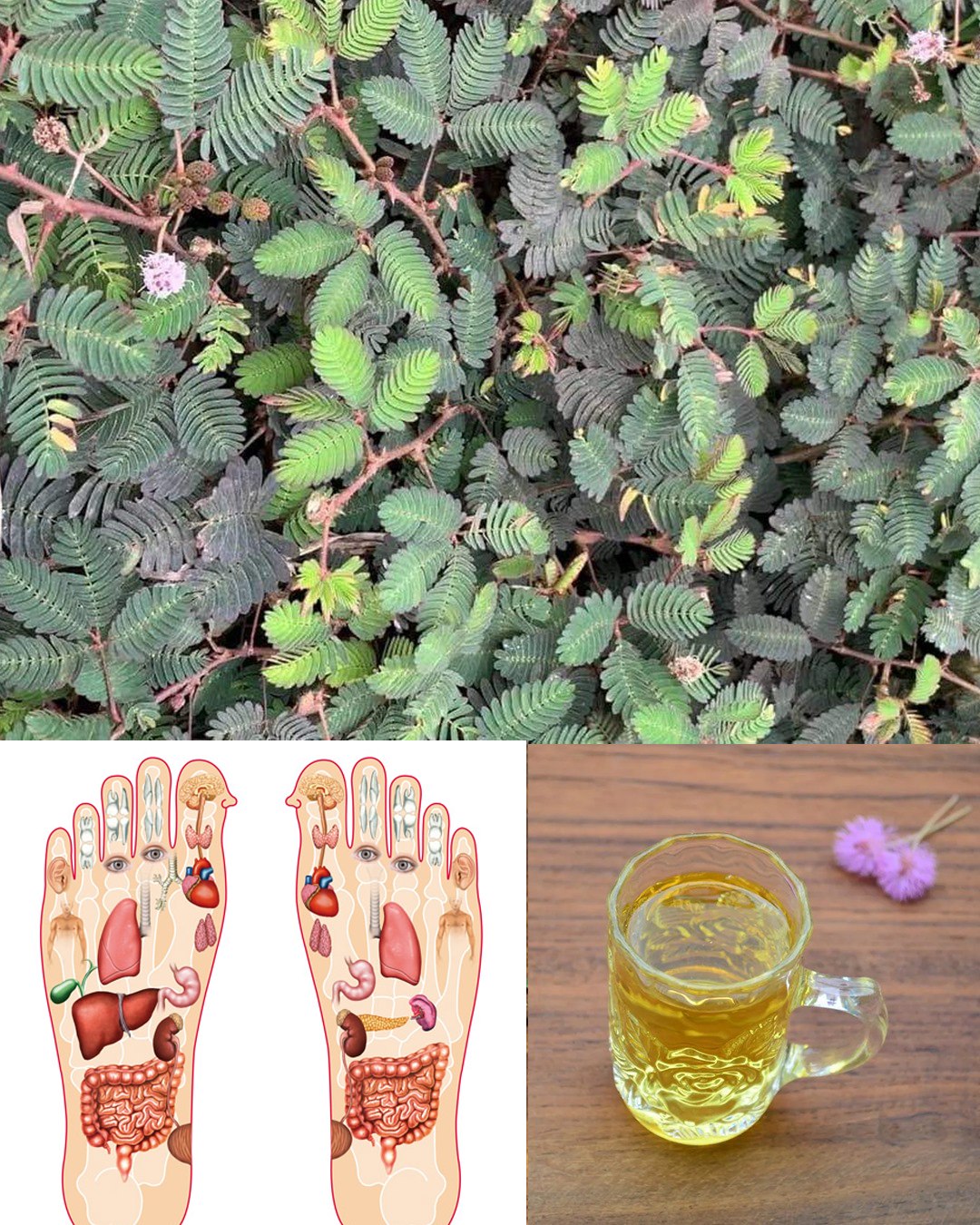HT1. The Healing Power of Mimosa Pudica: 10 Health Benefits and How to Use This Amazing Plant
Mimosa pudica, commonly known as the sensitive plant, touch-me-not, or “dormideira” in Portuguese, is much more than a fascinating plant that closes its leaves when touched. Native to Central and South America, this small, humble plant has been used for centuries in traditional medicine for its potent healing properties. While its movement in response to touch has made it a favorite among children and nature enthusiasts, the real magic lies in its wide array of health benefits. In this article, we’ll explore ten incredible health benefits of Mimosa pudica and provide practical ways to incorporate this plant into your wellness routine.
10 Health Benefits of Mimosa Pudica
- Anti-inflammatory Properties Mimosa pudica has powerful anti-inflammatory effects that can help reduce inflammation in the body. Whether applied topically to reduce swelling or taken internally, this plant can help soothe conditions such as arthritis, muscle pain, and other inflammatory disorders.
- Liver Health This plant is known for its hepatoprotective properties, meaning it helps protect and detoxify the liver. It can be used to support liver function, helping to cleanse the body of toxins and promote overall liver health.
- Digestive Aid Mimosa pudica can assist with various digestive issues, including constipation and diarrhea. Its mild laxative properties can help regulate bowel movements, while its ability to reduce inflammation makes it effective for soothing the digestive tract.
- Antimicrobial and Antiviral Effects Studies have shown that Mimosa pudica possesses antimicrobial and antiviral properties, making it effective in fighting off infections. It can be used to treat minor wounds, prevent infections, and even assist in managing viral conditions.
- Sedative and Relaxant If you struggle with anxiety, insomnia, or stress, Mimosa pudica might be a natural solution. The plant has mild sedative effects that can help calm the nervous system, promoting better sleep and relaxation.
- Oral Health The antibacterial properties of Mimosa pudica make it an excellent natural remedy for oral health issues. It can be used as a gargle to reduce inflammation and infection in the mouth, throat, and gums.
- Wound Healing The anti-inflammatory and antimicrobial properties of Mimosa pudica also make it effective for wound healing. When applied as a poultice, it can help speed up the healing process of cuts, sores, and skin infections.
- Menstrual Relief Women suffering from menstrual cramps or premenstrual syndrome (PMS) may find relief in Mimosa pudica. The plant can help alleviate pain, reduce irritability, and regulate menstrual cycles.
- Support for Hemorrhoids Mimosa pudica’s soothing properties can provide relief for hemorrhoids, reducing pain and inflammation when applied topically or taken internally.
- Antioxidant Effects The plant is rich in antioxidants, which help combat oxidative stress in the body. This not only supports overall health but also helps in preventing chronic diseases linked to oxidative damage.
How to Use Mimosa Pudica: 5 Practical Applications
- Herbal Tea One of the simplest ways to use Mimosa pudica is to make an herbal tea. How to Prepare: Boil one teaspoon of dried Mimosa pudica leaves in a cup of water for about 10 minutes. Strain and drink the tea once it cools down. This tea can help with digestive issues, anxiety, and insomnia.
- Topical Poultice For treating wounds, sores, or skin irritations, a Mimosa pudica poultice can be very effective. How to Prepare: Crush fresh leaves and stems of the plant to form a paste. Apply the paste directly to the affected area and cover it with a clean cloth. Leave it on for a few hours before rinsing it off. Repeat as needed.
- Gargle for Oral Health To use Mimosa pudica for oral health, you can prepare a simple gargle. How to Prepare: Boil a handful of leaves in water, let it cool, and then use the liquid as a mouthwash. This helps reduce inflammation and combat infections in the mouth and throat.
- Bath Soak For overall relaxation and skin health, you can add Mimosa pudica to your bath. How to Prepare: Add a handful of dried leaves or a few drops of Mimosa pudica extract to warm bathwater. Soak in the bath for 20-30 minutes to benefit from its soothing and anti-inflammatory properties.
- Capsules or Powders Mimosa pudica is also available in capsule or powdered form for internal use. How to Use: Follow the dosage instructions on the packaging, as concentrations can vary. This form is convenient for supporting digestive health, liver function, and reducing inflammation.
Disclaimer
While Mimosa pudica has many health benefits, it’s important to use it with caution. The plant should be avoided by pregnant or breastfeeding women, and those with certain medical conditions should consult a healthcare provider before use. Additionally, excessive consumption can lead to adverse effects, so it’s essential to adhere to recommended dosages.
Mimosa pudica is more than just a plant that reacts to touch—it’s a powerful natural remedy with a variety of health benefits. From reducing inflammation to supporting liver health, this plant offers a range of uses that can enhance your wellness. By incorporating Mimosa pudica into your health regimen, whether through teas, poultices, or other methods, you can tap into its ancient healing properties. However, as with any medicinal plant, it’s crucial to use Mimosa pudica responsibly and consult a healthcare professional when necessary.











Post Comment